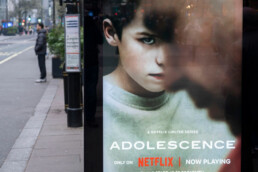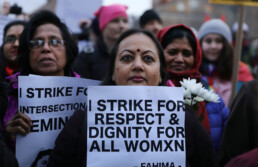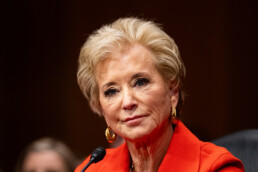Netflix's Adolescence Isn't About Race, Except Maybe It Is
The hit show provokes an empathy that Black boys seldom get
By Rebecca Carroll
Everyone is talking about Adolescence, the new Netflix drama that tells the harrowing story of a 13-year-old boy who is accused of killing his classmate, a girl named Katie. As a mother, I watched it as a cautionary tale about the perils of violent incel culture on the still-developing brains of young boys. But as a Black cultural critic who is also the mother of a Black boy, it also made me think about who we feel empathy for, and who we do not.
To be clear, I loved Adolescence. Each episode is shot in one remarkable take, every scene strung together like a grievous aria. The effect is gutting. At the center of the show is 13-year-old Jamie Miller (Owen Cooper), a baby-faced schoolboy with alabaster skin, brooding eyes, and a sullen British lilt. Jamie lives with his working-class family in the small town of West Yorkshire, England, and has been accused of the stabbing murder of his classmate. There are no spoilers to be had—damning video evidence is revealed in the first episode. The rest of the series unfolds the devastating aftermath of Jamie’s crime; the unraveling of his family following his arrest and incarceration; and the painstaking path to understanding his motivations.
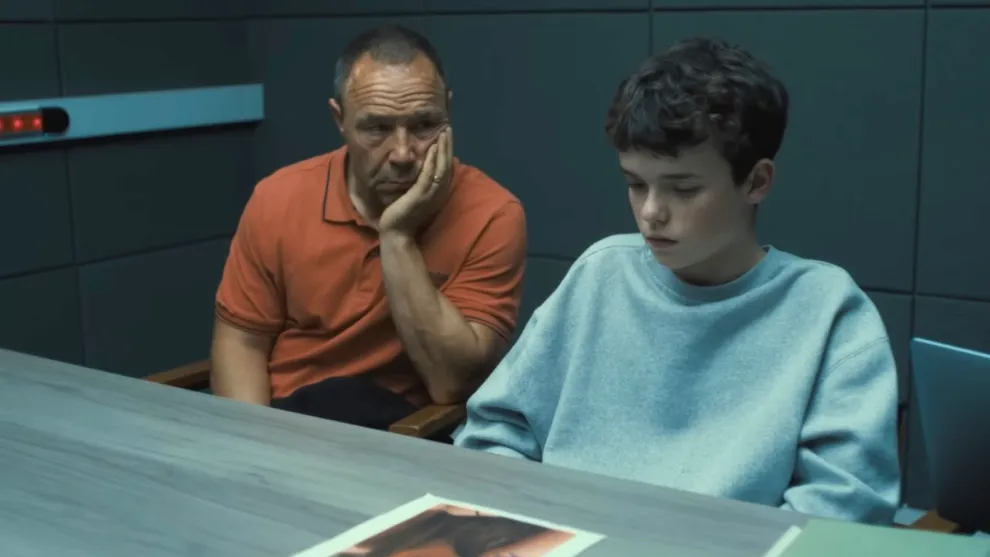
It is a path paved with compassion. Jamie is presented as a victim of the manosphere, spending all those unsupervised hours holed up in his room, delving deep into a misogynist world online and on social media. By the end of the series, I was still somewhat rooting for this white boy who, yes, was a target of cyberbullying and the coded emoji world of Instagram, but who also committed a violent murder. This show made me worry about men, and I never worry about men. But my empathy speaks volumes about how we are all conditioned to receive and accept the way this boy is presented—and the fact that he is not demonized, a grace seldom offered to young Black boys.
According to the show’s co-writer and co-creator, Stephen Graham, Adolescence was inspired by an article he read about a boy who stabbed a girl to death, along with several other news stories about violent crimes committed against girls by young boys across Great Britain. He didn’t mention race (although, as a mixed-race person, Graham is no stranger to racism). But members of the very manosphere at the core of Adolescence have been quick to make its premise about race, spreading misinformation that the show was based on the murder of three young girls at a Taylor Swift-themed dance party in Southport, London last summer. The perpetrator in that case was 13-year-old Axel Rudakubana, who is Black. Despite the fact that production on Adolescence was well underway when those murders took place, right-wing influencer Ian Miles Chong took to X to accuse the show’s creators of “race-swapping” as an act of “anti-white propaganda,” a false claim that was promptly endorsed by X owner Elon Musk.

There are similarities in the stories: Rudakubana struggled with mental health issues and was also being bullied. He had even called a welfare hotline asking for help about what to do if he had homicidal ideations. But the media coverage of his case was short on the kind of empathy we feel for onscreen Jamie, whose first utterance is a terrified, “I’ve done nothing wrong.” Instead, the headlines in Rudakubana’s case went straight to describing him as an “evil killer,” and a “recluse teenage loner, obsessed with violence” who was on “a long path to murder.”
Had the creators of Adolescence cast a Black boy in the role of Jamie, the audience may well have perceived him with the same built-in bias that the media showed toward Rudakubana. But it might also have gone a long way in helping to extend the kind of empathy that Black boys deserve, too—a moral restitution that goes far beyond good television.
Everything's Bigger in Texas...Including Abortion Bans
 March 20, 2025 Greetings and glad tidings, Meteor readers, ‘Tis the spring equinox! Time to go outside and frolic in the forests. Good luck finding an egg-laying rabbit.  In today’s newsletter, we are, for the umpteenth time, talking about Texas. Plus, the long-awaited executive order attempting to get rid of the Department of Education, and your weekend reading list. Tree huggin, Shannon Melero  WHAT'S GOING ONTen-gallon nightmare: Last Friday, Texas state senator Bryan Hughes introduced the most expansive anti-abortion bill the state has seen since the overturn of Roe v. Wade. Get comfortable, because we’re going to be here a while. What’s in SB 2880? Well…everything, basically. The bill allows for anyone to file a civil lawsuit against a company or individual for playing any part in facilitating an abortion in Texas or for a Texas resident. Individuals and groups can also be sued for being an “information content provider.” As journalist Jessica Valenti points out in her coverage of the bill, even apps like Venmo and Signal could get sued for their part in an abortion. “If the bill worked, it would be a lot harder to find information about abortion online in Texas and potentially everywhere else,” another abortion expert told The 19th. Since “the internet is the same everywhere,” this law could potentially be used to attack companies throughout the United States that host abortion information. The bill also allows for the “biological father” of an “unborn child” to bring a wrongful death suit against abortion providers in any state, regardless of his relationship to the mother. (Yes, even one-night stands.) There is a carve-out in the law that stipulates a man cannot bring a suit if the child was conceived from an act of sexual assault, but we’re betting it’ll be about as effective as other rape-and-incest exceptions in abortion bans. (That is to say, not very.) But wait! There’s more. This bill gets extremely particular about medication abortion, allowing civil actions against people who “manufacture, possess, distribute, mail, transport, deliver, prescribe, or provide an abortion-inducing drug in any manner to or from any person or location” in Texas. Bought some pills from heyjane.com to stockpile in case of emergency? Lawsuit! Live in a blue state and mailed pills to your friend in need who happens to live in Texas? Lawsuit! Once again, there is a carve-out for any emergencies related to preserving the life of the mother, but as we’ve seen in a number of cases out of Texas, that doesn’t always work in real life. I hope you don’t think we’re done yet. SB 2880 is so nefariously thorough that abortion funds are also caught in the crosshairs. The bill would make it a felony for an individual or group to pay for or reimburse any costs incurred by obtaining an abortion, including the costs of traveling out of state for care. That $20 you gave someone for gas to get to a clinic across state lines? A second-degree felony if this bill becomes law. In fact, if I tell you right now to go support Fund Texas Choice, I could potentially be sued when this bill passes, as could my boss for owning a website supplying this information, as could my editor, Nona, who has to edit these long, rambling sentences. You, on the other hand, could be subject to a criminal suit because you actually sent the money. That is how thorough it is. In the words of a famous Texan, ring the alarm. The bill was read for the first time in the state senate yesterday and has already been referred to the committee for State Affairs. Should it pass and be signed, the law would go into effect in September—but will probably face a number of challenges in court from abortion rights and First Amendment groups. If you live in Texas, call your state senator. If you don’t, continue supporting abortion funds until you can’t anymore. AND:
 RUINING KIDS' FUTURES RIGHT IN FRONT OF THEM. BOLD. (VIA GETTY)
 MY HEART WILL GO ON. (VIA INSTAGRAM)
 WEEKEND READING 📚On denial: Earlier this month the Trump administration received a petition to grant Puerto Rico’s independence via executive order. The move has had a chilling and divisive effect on the island. (The Latino Newsletter) On the end of an era: An inside look at the final days of Voice of America. (Columbia Journalism Review) On the record: Elon Musk’s fearless estranged daughter calls him a “pathetic man-child.” (Teen Vogue)  FOLLOW THE METEOR Thank you for reading The Meteor! Got this from a friend?
|
![]()
Why Did Texas Target This Midwife?
 March 18, 2025 Hey there, Meteor readers, Bad Bunny and Calvin Klein. I will not be elaborating any further. In today’s newsletter, we grapple with the broader implications of a midwife’s arrest in Texas. Plus, the Trump administration faces off with the judicial branch. Orgullosa, Shannon Melero  WHAT'S GOING ONEasy targets: Yesterday, Texas Attorney General Ken Paxton’s office announced the arrest of a Texas-based midwife, Maria Margarita Rojas; two of her employees were arrested later. Rojas, who was reportedly arrested at gunpoint, and Jose Cendan Ley have been charged with “illegal performance of an abortion” and allegedly practicing medicine without a license, while Rubildo Labanino Matos was charged with conspiracy to practice medicine without a license. This appears to be the first arrest of a provider since the overturn of Roe v. Wade. We don’t yet have too many details on this case, other than statements from Paxton’s office which, as writer Jessica Valenti points out, will only reflect the state’s official framing. Valenti also suggests that the targets themselves are handpicked. “Republicans are strategically targeting people they think the public won’t rally behind,” she writes. And they’re also targeting the people who are serving the most vulnerable: Just the day before Rojas’s arrest was announced, a study of 2023 birth data from the National Bureau of Economic Research found that the fall of Roe v. Wade had disproportionately denied abortions to Hispanic women, poor women, women without a college degree, and women living furthest from abortion providers. These are some of the women Rojas served: Waller County, Texas—where one of her Houston-area health clinics is located—has a more than 30% Hispanic population and a 14% poverty rate. The Houston area is also more than 500 miles away from the nearest abortion clinic. But what makes Paxton so sure the public won't rally behind Rojas and her employees? The answer can be found in his two statements announcing the arrests, where Paxton makes sure to note that Matos and Ley are not U.S.-born—a fact that has no bearing on their charges. It does, however, have a lot to do with Paxton’s anti-immigrant track record. This is the same man who put floating “death traps” in the Rio Grande to prevent immigrants from crossing into Texas. The fact that Ley and Matos are both Cuban nationals and that Rojas was born in Peru is catnip to a man who seeks to eliminate from his state both abortion and immigrants. Paxton and those who support him are relying on the fact that the community Rojas and her clinics served won’t speak up for her because she worked with Spanish-speaking, low-income clients who already contend with a litany of safety concerns. Immigrant communities are already under immense strain with ICE now targeting and detaining people regardless of their legal status. As Farah Diaz-Tello of If/When/How noted to The Cut, former patients “might be worried whether they can be criminally prosecuted, whether their private health information is now gonna be used as part of the criminal prosecution against the provider.” The state still has to prove its cases against Rojas, Matos, and Ley, and we will keep you updated as this story unfolds. But what these initial facts have made clear is that the war on abortion is most focused on the people with the least power in America: anyone who can get pregnant, poor people, people of color, and immigrants. You can help those being prosecuted for abortion-related activities by supporting the Abortion Defense Network or the Repro Legal Defense Fund. AND:
  FOLLOW THE METEOR Thank you for reading The Meteor! Got this from a friend?
|
![]()
Pissed Off About Insurance? So Are These Doctors
Physicians are publicly calling out red tape and immoral practices. Vivian Manning-Schaffel gets the story.
Dr. Elisabeth Potter was still wearing a scrub cap when she fired off a now-viral Instagram post that took direct aim at the biggest health insurance company in the country. In her post, she talked about having to scrub out of surgery to hop on an urgent authorization call with United Healthcare, which was asking for details about her patient’s diagnosis and whether her overnight hospital stay was justified.
“Do you understand that she's asleep right now? And that she has breast cancer?” Potter, a Texas-based board-certified plastic surgeon and breast cancer reconstruction specialist, says she told the rep on the phone. “Actually, I don’t. That’s a different department,” she says the rep replied. “When I get a call from an insurance company for a woman with breast cancer, I always think they're going to try to deny her surgery,” she told The Meteor. After her post went viral, she shared another post on Instagram, a strongly worded letter from the attorneys of United Healthcare demanding that she take her post down, issue a public apology, and inform Newsweek that her “claims were false."
Then, she went on CNN.
It’s rare to see a doctor putting an insurance company on blast—partly because threats of legal action can be daunting for already overworked providers. Potter has long been the exception, taking to the morning-show circuit five years ago to advocate for safer breast implants despite what she called “bullying and pressure” from insurance companies. But since Potter’s post went viral, the floodgates have opened. Doctors like Washington, D.C. critical care physician Dr. Anita Patel, who recently took on Anthem Blue Cross Blue Shield for attempting to impose time limits on anesthesia, and Florida breast cancer surgeon Dr. Alicia Billington, who took Cigna to task for what she saw as failing to adequately cover reconstructive surgeries, have gotten more vocal about healthcare industry practices that they say sacrifice the well-being of their patients.
THE NIGHTMARE OF “PEER-TO-PEER” CALLS
Dr. Shikha Jain, a hematologist and oncologist at the University of Illinois Cancer Center, has often used social media to amplify unjust insurance practices, tweeting about how insurance companies have delayed her patients’ urgent scans, denied coverage of a cancer combo therapy, and kept her on hour-long peer-to-peer calls. These delays and denials—which Dr. Jain calls “insurance scams”—are “all because insurance companies are just trying to save a buck and don't care about the patients’ lives,” she said. Her online advocacy has led to op-eds, TV interviews, and an appearance in a New York Times Opinion video piece.
“When I get a call from an insurance company for a woman with breast cancer, I always think they're going to try to deny her surgery”—Dr. Elisabeth Potter
One of Dr. Jain’s pet peeves? Those so-called “peer-to-peer” calls, like the one Dr. Potter had to make during surgery, when an insurance company doctor will speak with a patient’s doctor to verify the need for coverage. She’s missed peer-to-peer calls during busy clinic hours, when she sees patients back-to-back, and because she’s missed them, the insurance company denied the claim, she says. This requires the patient to appeal the decision, which can take several months.
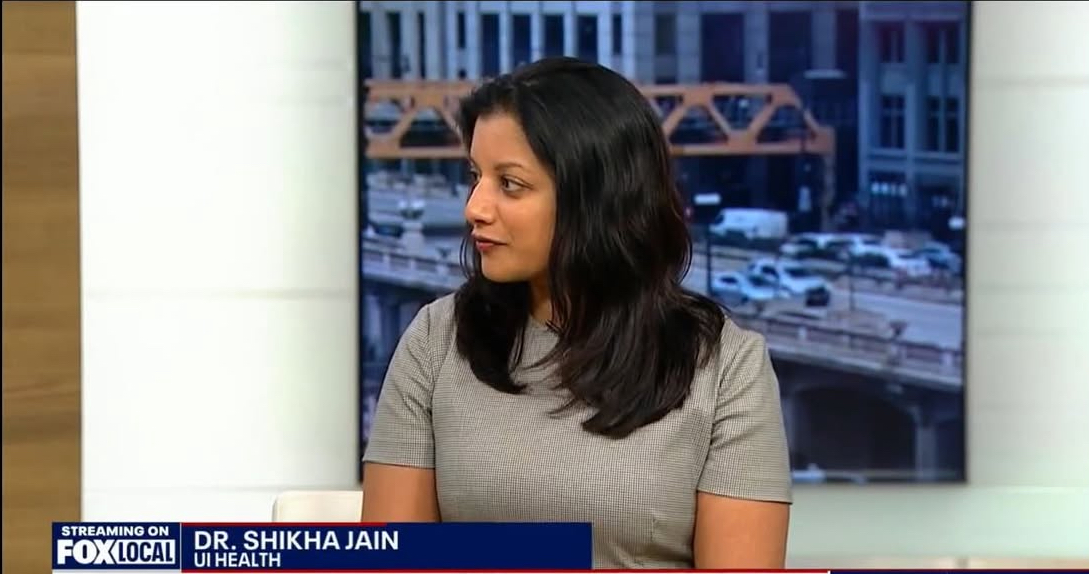
What’s worse, the doctors interviewed say, the calls that can make or break a patient’s coverage aren’t always with doctors who share their specialty or expertise, sometimes resulting in significant care delays and perilous health risks for their patients. “You are the person, sitting in the room with the patient...crying with them because their chemotherapy has been denied,” Dr. Jain says, while “somebody who has never seen a patient with this disease is sitting at a computer a thousand miles away, making decisions based on an algorithm that is set up to deny care.”
Dr. Anita K. Patel, a pediatric critical care physician at a large children’s hospital in Washington, D.C. says she recently called out Anthem BCBS “100% in response” to Dr. Potter’s own post about the company’s announcement that it would put time limits on anesthesia (a decision it has since reversed due to widespread backlash). “I work in an ICU for kids,” says Patel. “We would get notifications they were denying coverage.” She often finds herself on peer-to-peer calls fighting for life-or-death necessities like ventilators and wheelchairs. She once spent what she describes as a “demoralizing” hour in circles with an attending physician on the insurance side who was intent on denying an ICU stay to a vulnerable child with a life-threatening neurologic injury. “Any delay of care could cost the kid their life, and there was no way the parents could afford the bill,” she said.
“NOBODY WANTS TO BE IN THE HOT SEAT”
So what can patients do when they’re at wits’ and wallets’ end with the insurance system? Besides keeping meticulous records of each contact with an insurance company and urging one’s workplace to pick plans that prioritize women’s health, Dr. Potter hopes patients will use social media for accountability, too. “I want to see open conversations about the nitty-gritty details of healthcare and the dark stories in courtrooms being had by providers and patients,” she says. But Dr. Jain says that while patients calling out insurance companies on social media can be effective, she understands why it could be the last thing they want to do. “How horrible is it if you're being treated for cancer,” she says, “then on top of that having to go to social media and fight for your ability just to get treated? That's not right.”
It may not be right, but the discomfort of publicly pressuring insurance companies could lead to more meaningful reform. Though, it may be a long road. While editing this piece, Dr. Potter fired off another IG post saying another patient came to her with a denial from United. “Nobody wants to be in the hot seat,” Dr. Potter says, “but I want to make it more comfortable for doctors and patients to say insurance and hospitals are doing things that are not good for patients, and not good for providers.”

Vivian Manning-Schaffel is a journalist and essayist who covers entertainment, culture, psychology, and women’s health. Her Substack, MUTHR, FCKD, covers pop culture through a feminist Gen X lens.
Are Protests Now "Terrorism?"
 March 11, 2025 The weather is absolutely gorgeous in New Jersey, which means it is officially hiking season for me and my mini. We’re packin’ snacks, makin’ tracks, and yelling “dog” every time we see one. And speaking of sunny optimism, thanks to all of you who turned out for our International Women’s Day event at the Brooklyn Museum last Saturday! We loved seeing every one of you almost as much as Aurora James loved seeing Diane von Furstenberg.  ALL LOVE! (PHOTO BY REDENS DESROSIERS) In today’s newsletter, we look at the larger impact of a student arrest, plus a frightening report on who exactly is in our state legislatures. Plus, the second annual Meteor Madness bracket group is now open. From the trail, Shannon Melero  WHAT'S GOING ONA green card didn’t save him: On Saturday, Mahmoud Khalil, a former graduate student at Columbia University in New York and a vocal member of the pro-Palestinian movement on campus, was arrested by Department of Homeland Security officers in the lobby of his university-owned apartment building. According to Khalil’s attorney, who spoke to NPR, he was told by the arresting officers that he was being apprehended because his student visa had been canceled. When Khalil, who is Palestinian, told officers that he was a legal permanent resident with a green card, they said that his green card had been revoked, too. He was arrested without a warrant, and for several hours, his lawyers and his wife could not find him. He is now in a detention center in Louisiana—although attempts to deport him were temporarily blocked by a federal judge on Monday morning. A little context: Khalil’s arrest comes on the heels of an executive order issued by Donald Trump which promised to detain and deport “Hamas sympathizers on college campuses” and any non-citizen who “endorses or espouses terrorist activity.” (There is no evidence he has committed a “criminal offense,” The Atlantic reported. ) But Trump is still taking a twisted victory lap, posting on Truth Social: “This is the first arrest of many to come,” he wrote, calling protesters “paid agitators” and “terrorist sympathizers.” Khalil has not been charged with a crime, nor is there proof that he’s a “paid agitator.” There’s no evidence that he’s said anything threatening or violent. He was, however, a very visible protester of the genocide in Gaza. He’s a leader of Columbia University Apartheid Divest (CUAD), a coalition demanding the school’s divestment from Israel. A quick search of Khalil will turn up photos of him at protests, sit-ins, rallies, and encampments. But those activities—per the Constitution!—are not crimes. So let’s be clear: Mahmoud Khalil is a political prisoner, punished for exercising his First Amendment rights. A lot of us are rightly up in arms about Khalil’s arrest—an arrest that feels ironic because Mahmoud Khalil is what the state would normally consider a “model minority.” He has a master’s degree from a prestigious institution, he’s a husband and soon-to-be father, and he presented a green card at the time of his arrest. But none of that saved him—all because he expressed views the government disagreed with.  PROTESTORS GATHERING ON KHALIL'S BEHALF IN NEW YORK CITY. (VIA GETTY IMAGES) So as social-media users have been asking: If basic human rights are not extended to people like Khalil, who is protected? If you can disappear someone with a green card, who can’t you disappear? These are fair questions. It’s also worth a reminder that other vulnerable people’s rights were taken away recently with far less outcry. In January, the bipartisan Laken Riley Act rendered due process a thing of the past for undocumented immigrants; the bill is apparently a driving force in the increase in targeted ICE raids. Just last month, more than 100 Venezuelans —some of whom had no criminal charges against them—were also “disappeared” after being detained in Guantanamo Bay. What’s being done to Khalil is egregious, but it’s not isolated. Like many immigrants, Khalil sensed he could become a target and reached out for help, only for it to fall on deaf ears. When the president of the United States promised months ago that he was coming for everyone who was against him, we should have believed him—and not waited until he came for someone with a green card. AND:
 FOLLOW THE METEOR Thank you for reading The Meteor! Got this from a friend?
|
![]()
A Global Backlash Against Women
 March 6, 2025 Hello, sweet Meteor readers, I live in the tundra, a.k.a. upstate New York, and to us, 50-degree days like the one we’re having today pass as signs of spring. That, and when my kid starts to come home from preschool covered in mud. It’s happening, y’all. Bring on the dirt.  Today, on the occasion of International Women’s Day, we take the temperature of women’s rights around the world. Plus, some good news for abortion, gender-affirming care…and your brain. Thawing out, Nona Willis Aronowitz  WHAT'S GOING ONA global backlash: International Women’s Day, celebrated every year on March 8, is always a good excuse to take stock of how women and girls are doing around the world. Two new reports confirm that there’s data behind what we can clearly see: There’s been a palpable backslide. A new poll conducted by Gallup in 144 countries asked participants, “Do you believe women in this country are treated with respect and dignity, or not?” and found that in 93 countries, women are much less likely than men to say yes. Echoing this data, a new report from UN Women has found that, precipitated by factors like COVID and political polarization, one in four nations reported that backlash impeded progress on women’s rights in 2024.  INTERNATIONAL WOMEN'S DAY RALLY IN NEW YORK CITY, 2018 (VIA GETTY IMAGES) Looking closer at Gallup’s results for the United States in particular, tells us a lot about how gender dynamics have changed here in the last decade or so. In 2012, a full three-quarters of women and 80% of men agreed that women in this country are treated with dignity and respect. Now, those numbers have plunged to 49% and 67%, respectively. That not only points to a huge gender gap in how respondents think women are treated (implying, perhaps, that men are not paying attention?) but a sharp decline overall. In fact, these percentages are the lowest in the United States since Gallup started these polls 20 years ago. So: Are they a bleak reflection of ways life has actually gotten worse for women since the fall of Roe v. Wade, the rise of far-right misogyny, and more? Or do they also show the rise in awareness of sexism and misogyny (a good thing)? For many women and some men, wake-up calls—like #MeToo and Trump’s two wins over two women—may have smashed any illusions of gender equality. Sexual harassment in the workplace was just as bad in 2012, for instance, but maybe now we’re more likely to notice it. Still, the data does make clear that when respondents say women are more likely to live without respect and dignity, they’re often right. The UN Women report found that in the last few years, discrimination against women and girls has risen, legal protections have lessened, the number of women and girls living in conflict has spiked by 50 percent, and funding for programs that support women has withered. If you’re looking for signs of progress, there are some: The report found some improvements over the last 30 years, like greater parity in education, one-third fewer maternal deaths, higher representation of women in parliaments, and more than 1,500 legal reforms striking down discrimination in 189 countries and territories. In a sliver of good domestic news, Pew Research Center also found in a recent survey that the pay gap has narrowed slightly in the United States. So the news isn’t all bad—but it’s a clear indication that progress isn’t linear and that we have a long way to go. The Gallup poll’s gender gap is most pronounced in young people; only 41% of young women think they’re treated with dignity and respect, as opposed to 63% of young men. This is depressing on one level but heartening on another: At least young women’s eyes are wide open to the work they still have to do. It’s an open question when and whether their male peers will get on board. AND:
 REPRESENTATIVE AL GREEN DOING WHAT MANY OF US WISH WE COULD DO: YELL AT DONALD TRUMP. (VIA GETTY IMAGES)
 WEEKEND READING 📚On hypocrisy: A pediatrician who left her seven-year-old daughter behind in the States to care for war-wounded children in Gaza confronts the monstrous lopsidedness of Western media covering the conflict. (LitHub) On loss: A mother writes a eulogy for her beloved Altadena house, which burned in the L.A. fires—and for a world in which the consequences of climate change seem remote (Romper) On reparations: Mina Watanabe explains the history of “comfort women”—a euphemism for women who were sex slaves for Japanese troops in the ‘30s and ‘40s—and what justice would mean for them. (New York Times)  FOLLOW THE METEOR Thank you for reading The Meteor! Got this from a friend?
|
![]()
A showdown on Capitol Hill
 March 4, 2025 Dearest Meteor readers, Wishing you a happy Women’s History Month…or at least an informative one. This month-long holiday was established in 1987, in the thick of the Reagan era—another historical moment of backlash against feminism. May we take the missteps and thrilling victories of ‘80s feminists to heart. In today’s newsletter, we lay out what to expect tonight during Trump’s speech to Congress (whether or not you actually tune in). Plus, a rare display of spine by moderate Democrats, and a few ways to make Mikey Madison’s support for sex workers more tangible. Re-reading Susan Faludi, Nona Willis Aronowitz  WHAT'S GOING ON
 AND:
 BILLIONAIRE EX-WRESTLING EXECUTIVE LINDA MCMAHON. (VIA GETTY IMAGES)
 FOLLOW THE METEOR Thank you for reading The Meteor! Got this from a friend?
|
![]()
AI's Woman Problem
February 25, 2025NEWS,NEWSLETTER
 February 26, 2025 Greetings, Meteor readers, This morning I read the devastating news that an asteroid scheduled to hit Earth will not be arriving as planned. So I still have to figure out how to potty-train my kid instead of hoping the asteroid will make potties irrelevant. Bummer! In today’s newsletter, we take a look at a new and troubling gender gap. Plus, for New Yorkers, a few reasons not to take your ex (governor) back. Life of the potty, Shannon Melero  WHAT'S GOING ONThe newest gender gap: New research shows that women in the workplace are using AI tools 25% less than men are, creating what researchers call an “AI gender gap.” The main reasons we’re using it less? Women seem to be more worried about being unethical or accused of cheating, especially because they “face greater penalties in being judged as not having expertise in different fields,” one researcher noted in the paper Global Evidence on Gender Gaps and Generative AI. “They might be worried that someone would think even though they got the answer right, they ‘cheated’ by using ChatGPT.” The paper explains that a hesitation to engage with AI more could harm women’s career development in the long run (given that AI is expected to be part of almost every workplace). Studies have also shown that most AI already exhibits gender and racial bias, and the only way to combat that is to expose AI to more diverse input, including user prompts. Avoiding use “could result in AI systems that reinforce gender stereotypes and ignore the inequities women face in everything from pay to childcare,” Harvard Business School’s Michael Blanding writes. However, given the ethical and environmental concerns around AI and the fact that these programs threaten to take the jobs of 79% of working women (but only 58% of working men), it’s not wholly irrational to not want to be involved.  REMEMBER WHEN WE ALL THOUGHT THIS IS WHAT AI WOULD BE LIKE IN THE FUTURE? BICENTENNIAL MAN 1999 (VIA IMDB) But there’s no need to abandon the concept altogether. If talking to ChatGPT—or having Google’s Gemini harass you about rewriting perfectly fine sentences, as it’s doing to me right now—feels like surrendering to The Man’s Internet, then consider bots like Diem or Claude, both of which are ChatGPT adjacent but reportedly designed with women and data privacy in mind. Or learn how to bend AI to your will with an educational platform like Folio. If you’re in South America, try Tainá, an AI assistant built with Indigenous tribes to keep traditional knowledge and Indigenous languages accessible. And not that it matters to the tech bros of the world, but were it not for women, we wouldn’t have the advanced computer systems and algorithms we do now. So just back off, Gemini, I got this. A “terrifying escalation”: A disturbing incident in Idaho this weekend has gone viral. As in other towns across the country, angry constituents at a town hall in Coeur d'Alene, a deep-red district, turned up to protest issues like Elon Musk’s takeover of the federal government and proposed cuts to Medicaid. But at this particular town hall, Teresa Borrenpohl, a former Democratic candidate for the state legislature, was forcibly removed from the event by private security after loudly criticizing the speakers. Borrenpohl was first threatened with pepper spray, then dragged by her feet and hands by unidentified men as witnesses told them to stop and demanded to know who they were. Borrenpohl was later charged with a misdemeanor battery citation. The incident was “pretty violent and traumatic,” one witness told the AP. “It was evident that dissent was not being tolerated,” another observed. The emcee of the event, Ed Bejarana, even taunted Borrenpohl from the stage: “That little girl is afraid to leave!” he shouted. “She spoke up, and now she doesn’t want to suffer the consequences.” The charges against Borrenpohl were eventually dismissed when the incident made national headlines, but the incident felt like a “terrifying escalation” of suppressing public dissent, as The New Republic’s Melissa Gira Grant put it. It remains to be seen whether escalations like this will be replicated across the country if and when protest becomes more widespread. But Borrenpohl hasn’t been cowed: “I think that my civil rights were stripped from me in that moment in a really embarrassing way,” she said. “[Do] we live in a country where you speak out of turn and the result is three men assaulting a woman?” AND:
 A NORMAL GUY NORMALLY SWINGING A CHAINSAW AROUND A POLITICAL EVENT. (VIA GETTY IMAGES)
 THERE WILL NEVER BE ANOTHER. (VIA GETTY IMAGES)
 FOLLOW THE METEOR Thank you for reading The Meteor! Got this from a friend?
|
![]()
"My Life Has Been on Standby"
 February 20, 2025 Greetings, Meteor readers, It came to my attention this morning that we are pretty much at the end of February. This is terrible news. It’s not that I don’t like March; I’m just utterly unprepared for its two major holidays: Women’s March Madness and Ramadan. Selection Sunday is less than a month away, and I will be hosting another Meteor bracket. My bestie, Em, the Meteor’s reigning champion, will be defending their crown, so start thinking about your picks. Glory and a Meteor tote are on the line.  In today’s newsletter, we are headed to Spain for the verdict in the Luis Rubiales case. Plus, a moment of silence for a four-legged hero, another sneaky attack on abortion rights, and your weekend reading list. Prayin’ and parlayin’, Shannon Melero  WHAT'S GOING ONCulpado: Luis Rubiales, the former president of the Royal Spanish Football Federation (RFEF), has been found guilty of sexually assaulting Jennifer Hermoso during the 2023 World Cup. As a refresher, during the gold medal ceremony that year, Rubiales handed the medal to Hermoso, grabbed her by the back of the neck, and forcibly kissed her on the mouth in the middle of an international live broadcast. Despite Hermoso’s obvious shock—and her statement that she didn’t like it—the moment was downplayed by the RFEF, Spain’s coach, and eventually Hermoso herself. Accusations of pressure and coercion quickly swirled—in fact, Rubiales was also charged with coercion for allegedly pressuring Hermoso to say the kiss was consensual, though he was acquitted of that charge. At the time, I wrote about the way The Kiss was a visual manifestation of what Spain’s women’s team had endured from RFEF in the lead-up to its first World Cup win—including an oppressive work environment perpetuated by the team’s coach, Jorge Vilda. Vilda and two other employees from the Federation were also charged with coercion but ultimately acquitted. Vilda is now the coach of Morocco’s women’s national team. When I heard the news that Rubiales was guilty, I felt a jolt of happiness that was immediately replaced by the question so many soccer fans and players continue to ask themselves: What will it take to make the beautiful game a safe one for all athletes?  HERMOSO DURING A MATCH LAST FALL. (VIA GETTY IMAGES) While this guilty verdict is a victory, the consequences are small. Rubiales will not be seeing any jail time; his punishment is paying a €10,800 fine and being banned from coming within 200 meters of Hermoso. The verdict is also a drop in the bucket: Abuse is rampant in women’s soccer, everywhere from the international level to U.S. Soccer to youth leagues. It’s taking years—and in the case of the U.S. Women’s National Team, 20 years—for these tiny measures of justice to be handed out, and yet governing bodies refuse to act with the urgency the state of women’s soccer demands. In fact, just four days after The Kiss, the RFEF actually threatened to sue Hermoso and other players on the team who had signed a letter asking that Rubiales be fired from his position. Meanwhile, Jenni Hermoso still has to work under the governance of RFEF and FIFA, which is contending with its own bevy of controversies. Her first World Cup gold is tainted, and what should have been a glorious experience instead links her forever with at man who assaulted her. “I’m a world champion but it seems that even to this day my life has been on standby,” Hermoso told the court during the trial. “I haven’t been able to live freely.” AND:
 TOO PRECIOUS FOR THIS EARTH. (VIA GETTY IMAGES)
 WEEKEND READING 📚On essential data: Rates of sepsis have gone up in Texas since the overturn of Roe. But the state doesn’t want you to know that. (ProPublica) On the money train: There is a way to stop Elon Musk and his made-up job. But it comes with a hefty price tag. (The Intercept) On going under the knife: One of the most dangerous states to give birth in is continuing to give first-time moms unnecessary C-sections. (Mississippi Today)  FOLLOW THE METEOR Thank you for reading The Meteor! Got this from a friend?
|
![]()
Can you talk about abortion in therapy?
February 18, 2025NEWS,NEWSLETTER
 February 18, 2025 Fair Monduesday, Meteor readers, I am still emotionally recovering from watching my two husbands reunite during the Saturday Night Live 50th anniversary special. I am, of course, talking about José Pedro Balmaceda Pascal Melero and Benito Antonio Martínez Ocasio Melero. Yes, they took my last name because we’re a very progressive throuple. In today’s newsletter, we try to understand what you can and can’t talk about with your therapist in abortion-ban states. Plus, a big payday for the athletes at Unrivaled. I love all my husbands equally, Shannon Pascal Ocasio Melero  WHAT'S GOING ONHow do you feel about that?: Therapy couches are sacred spaces, where people are encouraged to say anything and everything to process, heal, and move forward. But what happens when you live in a place like Texas or Mississippi, and the thing you need to talk about is an abortion that your state has made illegal? “I have this fear of bringing this subject up to my therapist because lines can get very blurry with mandated reporting,” one young Texas woman told Public Health Watch in a story released last week. The woman, who chose to remain anonymous, said she had used abortion pills to terminate a wanted but risky pregnancy and has been grieving ever since. But she feels she can’t work through that grief with a professional because of the “climate of fear” in anti-abortion states, where conservatives promise that anyone seen to be aiding and abetting abortion will be punished. How concerned should folks in therapy be? In most states, social workers and healthcare professionals are also mandated reporters, meaning they have an obligation to report any known or suspected abuse, child neglect, or intent to commit harm—so it’s understandable to be concerned that in a state that criminalizes abortion, a therapist could be pressed to report. But patient confidentiality laws are extremely clear about what qualifies as abuse or harm, and so far, abortion has not qualified. Still, the abortion laws in Texas, with their bounty rewards, are written just vaguely enough that healthcare professionals across fields are unsure of exactly what their clients can say to them or how they can respond, according to Public Health Watch’s reporting. As usual, the chaos is the point. “The intention behind these laws is to stoke confusion and fear so that people don’t seek abortion care and that providers are afraid to provide abortion care and that functionally people stop talking about it altogether out of fear,” Lucie Arvallo of the Texas reproductive rights group Jane’s Due Process told Public Health Watch. But as much as abortion ban states may try to fearmonger, confidentiality laws still protect those in therapy. If you’re concerned your therapist may not be trustworthy, you have options and, more importantly, you have rights. A mental health professional cannot share your name, contact information, or session notes without your consent or a subpoena from law enforcement. More suggestions for addressing the issue (and finding a new therapist if you need one):
AND:
 COLLIER AND THE NATASHA CLOUD DURING A GAME EARLIER THIS MONTH. (VIA GETTY IMAGES)
 FOLLOW THE METEOR Thank you for reading The Meteor! Got this from a friend?
|
![]()
